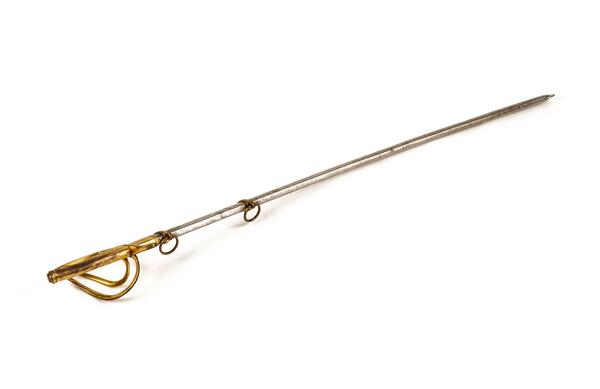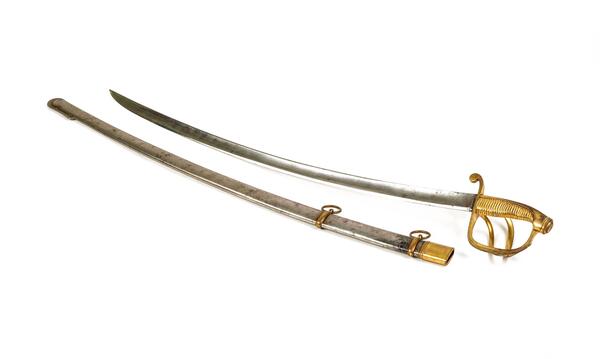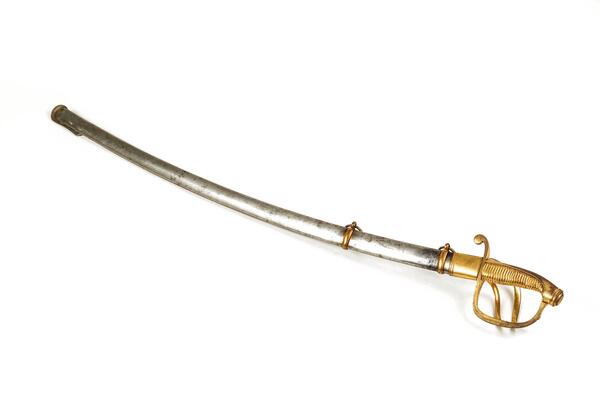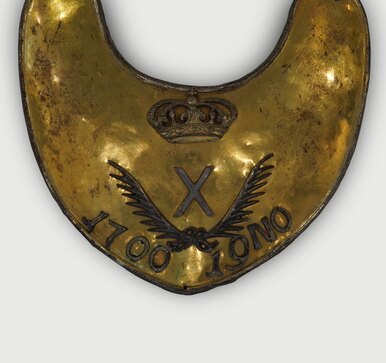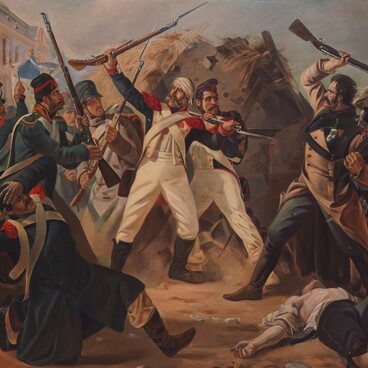Arkady Alexandrovich Panaev was son of a hero of the Patriotic War of 1812, who had received the Gold and St. Anna Weapons for bravery.
Arkady Panaev followed in his father’s footsteps: he graduated from the First Cadet Corps and entered the Uhlan Regiment of Adjutant General Prince Chernyshyov. There he took up a position as an adjutant to Admiral Prince Alexander Sergeyevich Menshikov, about whom he later wrote a memoir.
On August 25, 1854, Panaev was promoted to the rank of lieutenant colonel. For his participation in the Crimean War of 1855, he was awarded the Order of St. Vladimir, 4th class with a bow.
In 1856, during the assault on Yevpatoria, he was the commander of Greek volunteer’ battalion, and also managed to successfully carry out a reconnaissance mission of enemy fortifications on the eve of the assault. For this, he was presented to the same award as his father — a gold sword with an inscription “For Bravery”. In 1859, he retired as a colonel.
From 1807 to 1917, honorary gold swords and blades in the Russian Empire were equated with state orders. Since 1855, they were awarded on a black-and-orange lanyard — a decoration made of ribbons of St. George.
According to the regulation of 1859, the Gold Weapon could be awarded to any officer if he was in the rank above captain or (from ensign to captain) — a recipient of the Order of St. George or St. Anna, 4th class.
The general’s honorary weapons were decorated with diamonds; they were intended exclusively for parades. However, since 1878, an additional instruction was issued: the general who received such an award was obliged to acquire at his own expense also a simple, unadorned, gilded weapon for daily military use. The St. George Cross was attached to the hilt of such a blade or sword. The weapon “For Bravery” was presented with a sword-knot, without the cross.
The honorary award could be received in the appropriate monetary equivalent. As is evident from archival data, this option was often used by soldiers living on a salary. With this money, they themselves ordered weapons modeled after the award, but those were only gilded. In the documents, such type of craftsmanship was called “finishing weapons after the manner of gold”. Regardless of this, the recipient was entitled to a certificate confirming the authenticity of the award and their honorary status.
Arkady Panaev followed in his father’s footsteps: he graduated from the First Cadet Corps and entered the Uhlan Regiment of Adjutant General Prince Chernyshyov. There he took up a position as an adjutant to Admiral Prince Alexander Sergeyevich Menshikov, about whom he later wrote a memoir.
On August 25, 1854, Panaev was promoted to the rank of lieutenant colonel. For his participation in the Crimean War of 1855, he was awarded the Order of St. Vladimir, 4th class with a bow.
In 1856, during the assault on Yevpatoria, he was the commander of Greek volunteer’ battalion, and also managed to successfully carry out a reconnaissance mission of enemy fortifications on the eve of the assault. For this, he was presented to the same award as his father — a gold sword with an inscription “For Bravery”. In 1859, he retired as a colonel.
From 1807 to 1917, honorary gold swords and blades in the Russian Empire were equated with state orders. Since 1855, they were awarded on a black-and-orange lanyard — a decoration made of ribbons of St. George.
According to the regulation of 1859, the Gold Weapon could be awarded to any officer if he was in the rank above captain or (from ensign to captain) — a recipient of the Order of St. George or St. Anna, 4th class.
The general’s honorary weapons were decorated with diamonds; they were intended exclusively for parades. However, since 1878, an additional instruction was issued: the general who received such an award was obliged to acquire at his own expense also a simple, unadorned, gilded weapon for daily military use. The St. George Cross was attached to the hilt of such a blade or sword. The weapon “For Bravery” was presented with a sword-knot, without the cross.
The honorary award could be received in the appropriate monetary equivalent. As is evident from archival data, this option was often used by soldiers living on a salary. With this money, they themselves ordered weapons modeled after the award, but those were only gilded. In the documents, such type of craftsmanship was called “finishing weapons after the manner of gold”. Regardless of this, the recipient was entitled to a certificate confirming the authenticity of the award and their honorary status.


